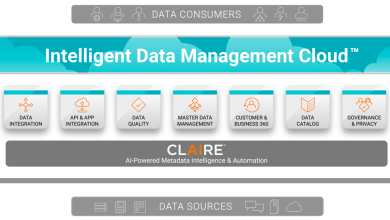
Syniti APJ, the company’s Asia Pacific and Japan subsidiary, has tripled its software business, well surpassing the company’s own projections, by assisting businesses in utilising their data to identify areas in which they can save money and improve efficiency. Established in February 2020, the “Triple in Three” plan had, as the name suggests, the goal of tripling the company’s size within three years. Gordon Lam, Syniti’s Global Chief Revenue Officer and President of the Asia-Pacific and Japan (APJ) region reported a 190% increase in net new customers in APJ, market expansion into India and Japan, and the establishment of a regional headquarters in Singapore.

Being Human Helps
While conversing with Data & Storage Asean, Lam discussed the company’s “Triple in Three” goal and its human-centric leadership style. Lam remarked that his experience as a team leader during the epidemic’s early stages taught him the need for empathy and compassion in leadership. “Leaders need to show a great lot more empathy and understanding in hard conditions, when everyone is confronting their own struggles,” Lam added. In situations where ‘strong’ leadership would have been inappropriate and unsuccessful, “it goes a long way” in keeping morale up and encouraging staff to give their all. Syniti APJ has tripled the size of its software company in only three years by advising businesses on how to use their data to identify areas where they can save money and improve efficiency.
A Person-Centred Approach
Lam then went on to discuss the future of the data and digital transformation industry and its implications for organisations throughout the Asia Pacific and Japan regions and the world. According to Lam, the industry is shifting toward a person-centred strategy, where technology is used to supplement rather than replace human talents. In order to thrive in this new environment, firms will need to retrain and reskill their employees. Lam stated that Syniti APJ will maintain its dedication to assisting businesses in using their data for digital transformation and in bolstering their development through upskilling and reskilling programmes.

The high speed of innovation in the digital transformation industry was also mentioned by Lam, with examples including the introduction of faster silicon processing power, 6G connection, the metaverse, and web 4.0. He emphasised the importance of data in driving this next phase of digital transformation. Therefore, “I foresee data having a big role in fuelling this next wave of digital change – and we have a front-row seat to these events,” Lam stated.
Avoiding Digital Transformation Pitfalls
Most attempts at digital transformation end in failure because of bad data. In order to make sound business decisions and prevent disastrous results, the quality of an organisation’s data is important. Damage to an organisation’s reputation and income are two further outcomes of poor data quality. Based on its research, Gartner has determined that companies lose an average of $12.9 million annually due to low-quality data.
Lam noted that in order to avoid the hazards of poor data and succeed in their digital transformation journeys, firms need to use an intelligent data platform. These systems serve to aggregate data from many systems within an organisation to a single centralised location, allowing all departments to use consistent, reliable data. “Such solutions handle everything from data administration to governance to analytics in a cohesive platform, assuring data accuracy from the outset. Most significantly, they give firms a single source of truth – a single system of records and data that can be utilised by diverse business units to make confident choices,” Lam said. This will not only help organisations reduce risks and losses but will also put them in a better position to discover possibilities that enhance business outcomes.
As a result of supporting businesses in making better use of their data, Syniti APJ has seen the size of its software company tripled in only three years. Using data for digital transformation and reskilling and upskilling personnel are two areas that Syniti APJ will continue to assist businesses with. Lam suggests using intelligent data platforms to give a single source of truth and to empower organisations to make decisions with certainty, thus avoiding the dangers of digital transformation.
Syniti’s plan for the next phase of expansion, according to Lam, is to “pick up the PACE.” This involves:
- Pivot to keep up with forecasted trends, such as the metaverse and web 4.0.
- Align activities to deliver the best data solutions to customers.
- Convert businesses into data-obsessed organisations.
- Elevate data capabilities to achieve greater value and performance.
With the unpredictability of macroeconomic pressure, it is expected to be even worse next year, so the plan for future expansion does make sense. DSA can’t wait to see what Syniti has in store for us in 2023.




